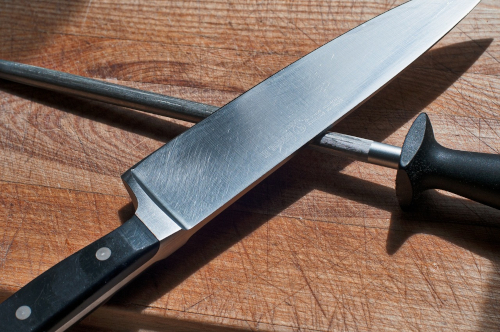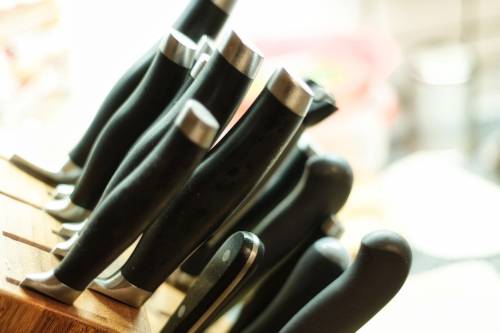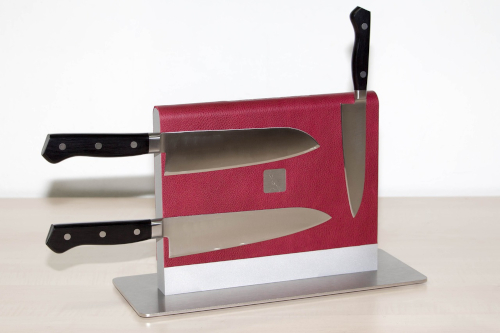Are You Committing These 3 Errors When Maintaining Your Knives?
These simple guidelines will have you exclaiming, “Absolutely, Chef!”
Whether you’re a culinary virtuoso or just muddling through meal prep, a high-quality Chef’s Knife or Paring Knife can significantly enhance your culinary journey. But once the slicing and dicing are complete, are you providing these utensils with the proper (and safest) care?

1. Avoid Dishwasher Usage at All Costs
Even if a knife claims to be dishwasher-safe, it’s prudent to bypass the cutlery compartment altogether.
Dishwashers subject knives to high temperatures, harsh detergents, and abrasive movements, leading to potential damage to the blades and handles over time. Handwashing is the optimal and most reliable approach to clean and maintain the integrity of your knives.
The agitation within a dishwasher can gradually dull the sharpness, but it’s primarily the wooden handles that can suffer from exposure to the elevated heat and humidity typical of dishwashers.
2. Mindful Blade Handling
Seasoned chefs will advise against casually tossing a knife into the sink with the notion of addressing it later. This practice is rooted in safety. Aside from the adverse effects of prolonged soaking in soapy water, numerous accidental cuts can occur when reaching into a sink full of dishes and encountering a forgotten Chef’s Knife.
To ensure safety during knife cleaning, consider these precautions:
- Wash from the spine of the blade to the tip to minimise the risk of accidental cuts, ensuring the sharp edge faces away from you during both washing and drying.
- Clean one knife at a time.
- After cleaning, store knives appropriately in a knife block, on a magnetic strip, or in a dedicated drawer with protective guards.

3. Prompt Drying is Key
Extended exposure to moisture and soaking can lead to swelling, warping, or cracking of wooden handles. It’s crucial to minimise water contact during cleaning and promptly dry the knife afterward.
Any steel knife is susceptible to rust formation, which occurs when the iron in steel reacts with water and oxygen. Factors such as moisture, oxygen, salt, and acids can accelerate rusting. Knives left damp or exposed to air after cutting acidic foods like citrus are particularly prone to rust.
To safeguard kitchen knives against rust, ensure thorough drying with a towel after washing, eliminating any residual moisture from the blade or handle. Store the knives in a dry environment, away from humidity, and consider applying a light coating of food-grade or specially formulated knife protection oil.

Clean Your Knife with Chef-like Precision
The correct method for cleaning kitchen knives involves handwashing with warm water and mild washing up liquid. Gently scrub the blade (sharp edge facing away from you) and handle using a soft sponge or cloth, paying attention to any food residue or stains. Rinse the knives thoroughly with clean water and promptly dry them with a towel.

